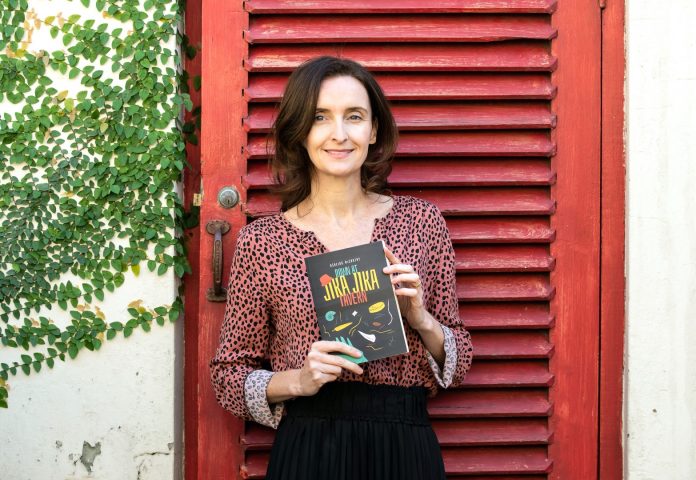In September we celebrate the wonder of books and reading with National Book Week (5-11 September) and International Literacy Day (8 September). It is also a month that reminds us of the critically endangered status of the world’s rhino population as we observe World Rhino Day (22 September).
Local author, Ashling McCarthy’s first book ‘Down at Jika Jika Tavern’, explores the realities of rhino poaching in Zululand, through the eyes of a young anthropologist. “The story creates awareness of social drivers that lead people to engage in illegal activities, such as social inequality, environment and wildlife crime. It also explores issues of culture and faith,” explains McCarthy. The story is told from the position of a diverse cast of characters, some of whom must challenge their long-held assumptions and preconceptions.
As an avid reader, Ashling admits that reading is possibly one of the most important activities in her life. “I’m never without a book because I love learning about the different ways in which people experience life,” she says.
Combining her love of reading and wildlife conservation, Ashling shares two recent reads that take the reader behind the scenes of the battle to save South Africa’s rhino. Two books, two men, and two vastly different strategies to reach the same goal: saving our rhino population from poachers so that future generations may enjoy them.
‘Rhino War’ by Johan Jooste (and Tony Park), tells the story of how a retired military general was called out of retirement and into a very different kind of war being waged within (and on the outskirts) of the Kruger National Park. Jooste is tasked with ‘militarising’ the rangers and creating a world-class anti-poaching unit. Whilst doing this, he must also address the very real issue of low morale amongst rangers. Men and women are expected to risk life and limb to protect South Africa’s rhino, yet are not valued enough to receive adequate training and resources, as well as crucial psychosocial support. Jooste calls it a war, and this is evident in the very real danger both rhino and rangers find themselves in, every day. He reveals that the number of ‘contacts’ between poachers and rangers in the park, was greater per year than the number of contacts at the height of conflict during the war in South West Africa. Yet, it is rangers, not trained soldiers, who are tasked with protecting our rhino. And it is the rangers that Jooste consistently mentions as the real heroes of this ongoing war.
In ‘Saving the Last Rhinos: The Life of a Frontline Conservationist’, Grant Fowlds and Peter Spence share how the Fowlds family rewilded their dairy farm into a Big Five game reserve in the Eastern Cape. It was on this reserve, Amakhala, that Fowlds became intimately involved with rhino poaching when two of their rhino were murdered for their horns. In time, fighting against rhino poaching would become a large part of Fowlds’ life. Today, his partnership with Project Rhino and its Rhino Art programme, which uses art as a vehicle to engage with school children around the importance of protecting rhino from poaching, has reached over 700 000 children. Project Rhino also works with local communities, many of whom live on the boundaries of game reserves, to increase conservation awareness, and encourage anti-poaching of wildlife.
“Both Jooste and Fowlds employ a strategy of cooperation, rather than confrontation, in the fight against rhino poaching,” says McCarthy. Jooste forged relationships between South Africa and Mozambique to address the cross-border activity that saw Mozambican poachers entering Kruger. He teamed up with private reserves surrounding Kruger to share information for a more organised and structured approach. And he crucially ensured that his rangers felt appreciated and recognised for the work they were doing. Fowlds’ work engaging with school children and communities, and including them in conservation strategies, is vital to changing the narrative that many who live on the borders feel: that a rhino’s life is more valuable than theirs.
Ashling offers talks to high school learners (aimed at grade 10 – 12) where she discusses the power of using creative writing to explore social challenges and also provides tips and advice for aspiring writers.
To book a 1 hour talk email [email protected]






